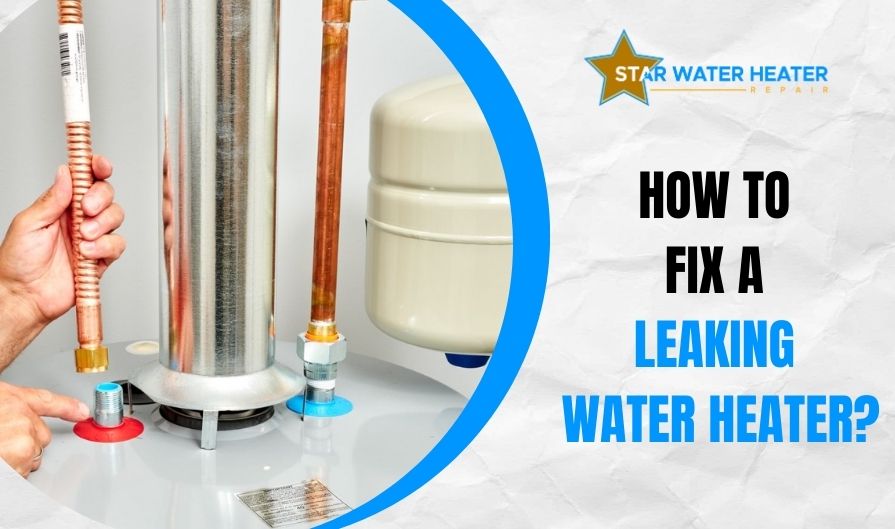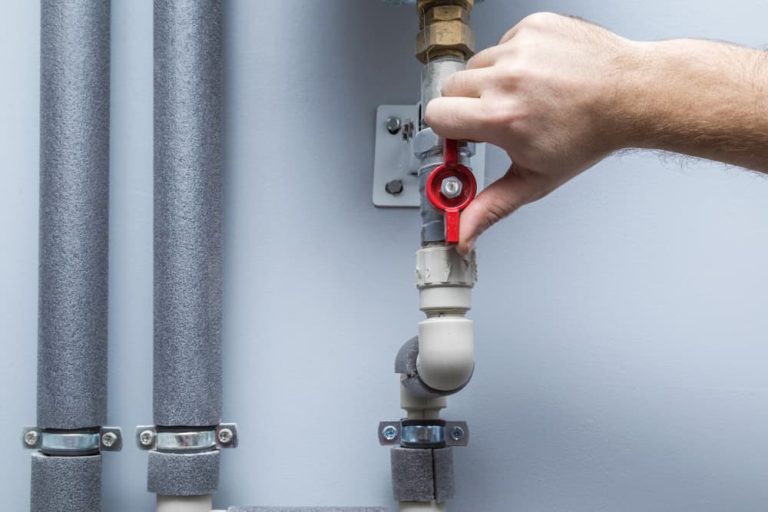How to Fix a Leaking Water Heater?
Did you ever wake up to find a strange waterhole under the water heater? Leaking water heaters can be a significant source of stress, leading to water damage and increased utility bills if not addressed promptly. This common household issue demands immediate attention to prevent further complications.
At Star Water Heater Repair, we specialize in expert solutions to all your water heater needs. Whether it be regular servicing or an emergency repair, our skilled technicians are here to make sure your water heater is functioning safely and perfectly. Trust us to handle your water heater repair with professionalism and care.
How Do I Know If My Water Heater Is Leaking?
Identifying a leak in your water heater is the first step towards fixing the problem. Here’s how you can detect signs of trouble:
- Water Puddle: You must have seen there’s a puddle under the tank. This common sign is an indication of a water leak from the water heater tank or its connections.
- Moisture on Pipes: These are wet areas or small drips that one may note around inlet and outlet connections. Sometimes a leaky water heater will present just such small signs.
- Corrosion or Rust: Visible corrosion or rust located anywhere near the tank’s base—especially near the hot water outlet or inlet—means there is a likelihood of water beginning to leak over time.
- Hissing or Dripping Sounds: If you can hear any strange, hissing, or dripping sounds from your water heater, then the water is leaking from its intended pathways.
- Water Marks on Surrounding: Look for water marks or staining on the walls or the floor around the water heater, indicating that it has had a water leak in the past or is currently leaking.
What Should I Do If My Water Heater Starts Leaking?
Once you notice any signs of leakage, immediate action can prevent further damages:
Shut Off the Water Supply
First, you should shut the water supply off to the water heater using the shut-off valve. This action helps in making sure that no excess water gets into the tank and thus worsens the leak and also the possible water damage.
Power Down the Heater
If the water heater is electric, go to your home’s electrical panel and turn off the circuit breaker for the unit. If you have gas water heaters; then disconnect the gas supply by turning the control valve. This eliminates any perils that are related to the leakage of electricity or gas.
Inspect the Source of the Leak
Whether it is the pressure relief valve, connections at the inlet or outlet becoming loose or is it an internal leak in the tank itself? One must identify the source of the damage specifically to proceed with the repair.
Contain the Situation
As you evaluate the situation, put containers or cloths to catch any dripping and additional water forming a puddle. It is a short-term measure which will reduce the amount of damage incurred on your environment due to water.
Call Expert Technicians
It’s advisable to hire the services of professional plumbers if the leak is from complicated parts such as the water heater tank or if it involves gas and electric elements. Professional water heater repair who have knowledge to complete repairs on water heaters and perform safe water heater replacements.
When Is It Time to Replace My Water Heater?
Sometimes, repairing a leaking water heater might not be cost-effective:
- Water Heater Age: No surprises if a water heater over 10-12 years old fails to work as usual, especially a gas water heater, as they do not have such a useful life.
- Frequent Repairs: If a gas water heater is being used, and the gas valve or circuit breaker tends to go down frequently, replacement is much preferable.
- Insufficient Hot Water: If you are accustomed to cold showers, are too tired, or simply cannot depend on your water heater for hot water, then this factor should ring some bells about your water heater not providing you with sufficient hot water.
- Higher Energy Bills: A too-old water heater may be less effective, causing greater energy bills. Pragmatic-wise, later versions are more effective and can cut the expenses for further use.
- Significant Leak: In the long run, the tank of a water heater can.
How Can Regular Maintenance Prevent Future Leaks?
Regular maintenance is key to prolonging the life of your water heater and preventing leaks:
- Yearly Reviews by Skilled Professionals: Schedule yearly checks with experienced plumbers to detect and address potential problems early, helping to prevent leaks and other types of damage.
- Tank Cleaning: Clean out your water heater regularly to eliminate sediment and mineral buildup that can lead to corrosion and tank damage.
- Monitor Water Pressure: Keeping the water pressure at the appropriate level helps avoid undue stress on your water heater, minimizing the chance of leaks.
- Check the Anode Rod: This rod is crucial for preventing rust in your water heater tank. Inspect and replace it as needed to prolong the life of your tank.
- Evaluate Safety Features: Ensure the pressure relief valve is working properly through regular testing, which helps manage excessive pressure and prevents leaks and failures.
You can also read: Cold Weather Tips For Tankless Water Heater Users
Wrapping It Up!
In conclusion, maintaining your water heater is essential for ensuring its longevity and efficiency. Regular checks and upkeep, such as inspecting the inlet and outlet connections with a pipe wrench, can prevent water leaks and other water heater dripping issues. Both electric heaters and gas heaters benefit from periodic draining through the drain valve to clear out sediment that affects water quality and temperature.
Ensuring that connections, including the hot water inlet and cold water lines, are secure can prevent leaks at loose connections. Ultimately, investing time in routine maintenance for your water heater means less likelihood of unexpected problems and a more reliable hot water supply for your home. Contact us today for your water heater leak repair.


